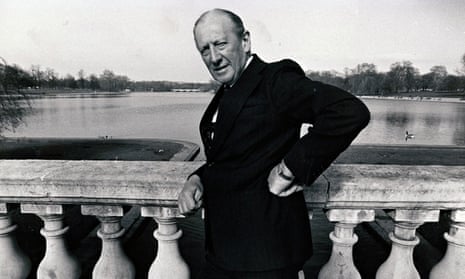The D-notice system is a peculiarly British arrangement, a sort of not quite public yet not quite secret arrangement between government and media in order to ensure that journalists do not endanger national security.
In his official history of the system*, a former D-notice committee chairman, retired Rear Admiral Nicholas Wilkinson, explained that it “emerged amorphously across three decades of increasing concern about army and navy operations being compromised by reports in the British (and sometimes foreign) press.”
It was finally created in 1912 in the runup to the first world war, when the fiercely anti-German press barons of the era were only too happy to prevent the enemy from accessing useful intelligence.
At the outset, therefore, it was largely viewed as a sensible and pragmatic arrangement that did not inhibit press freedom. Editors and journalists appear to have accepted it without demur up to and including the second world war, when self-censorship was the order of the day for Britain’s press.
The first major controversy occurred during Harold Wilson’s administration, in 1967, in what became known as the D-notice affair, thus bringing the system’s existence to wider public attention for the first time.
Wilson accused the Daily Express and its defence correspondent, Chapman Pincher, of ignoring D-notices by revealing that the secret services were scrutinising thousands of private cables and telegrams sent from Britain without obtaining the necessary Official Secrets Act warrant.
The prime minister called for an inquiry and set up a tribunal to decide whether Pincher had breached the system. It prompted the Daily Mirror editor, Lee Howard, to resign amid mutterings of censorship. Then, to Wilson’s embarrassment, the tribunal cleared the Express.
But the effect of this affair had far-reaching implications. Editors were bolstered by the fact that the tribunal had underlined the voluntary nature of the system. Governments became hesitant about being overly heavy-handed about using D-notices to prevent publication that could be shown to be in the public interest.
Four years after the Wilson fiasco, all existing D-notices were cancelled and replaced by what were called “standing D-notices”, which gave general guidance on what might be published and what should be discouraged.
The fact that such notices were recommendations to editors, without any legal status, resulted in them being renamed in 1993 as DA (defence advisory) notices.
One of the interesting features of the system has been the press-friendly nature of several of the officials chosen to head the committees, former senior servicemen such as Wilkinson and Colonel Sammy Lohan.
And it is truly ironic that Wilkinson’s history was itself subjected to censorship. Five chapters had to be excised prior to publication in 2009 after Whitehall officials invoked a rule that official histories should not include matters concerning the administration in power. It is being republished with new chapters this month. Famously, editors have also got away with bypassing the D-notice system altogether by refusing to alert the committee to stories they feared might lead to injunctions.
The Observer kept secret its 2004 revelation about a memo showing Britain helped the US conduct a secret and potentially illegal spying operation at the UN in the runup to the Iraq war.
And the Guardian did not consult the DA-notice secretary before publishing the first of its Snowden leaks, although it did so with subsequent stories. The original failure to do so was cited as the reason for a review into the system that has led to its latest incarnation.
The result? An almost identical system but a change of name: DA-notices become DSMA (Defence and Security Media Advisory) notices. Nothing, it seems, works quite so well as a British fudge that allows the press to keep its freedom while volunteering to protect national security.
* Secrecy and the Media: the Official History of the United Kingdom’s D-Notice System by Nicholas Wilkinson (Routledge, 2009)

Comments (…)
Sign in or create your Guardian account to join the discussion